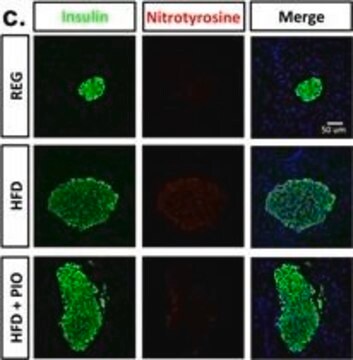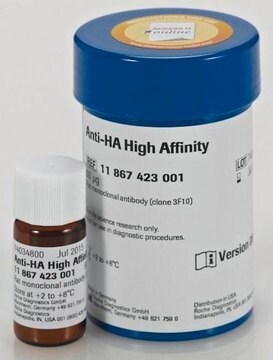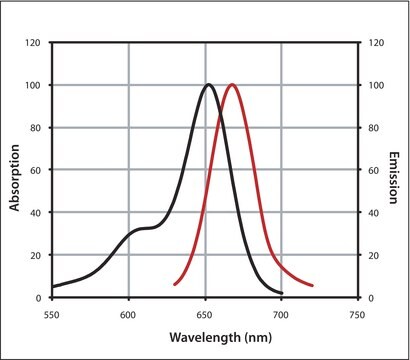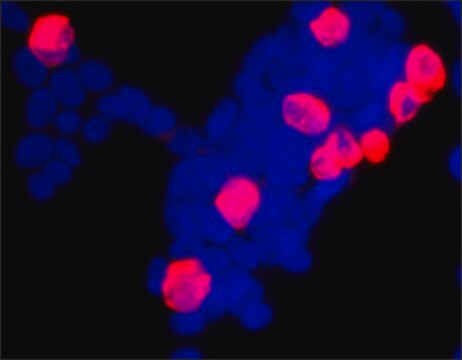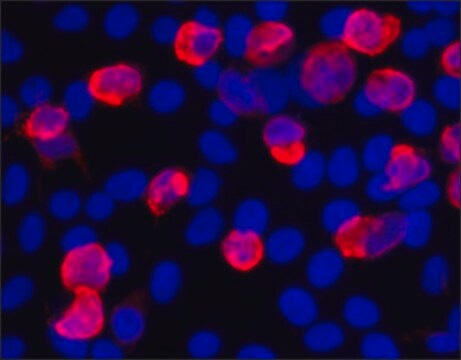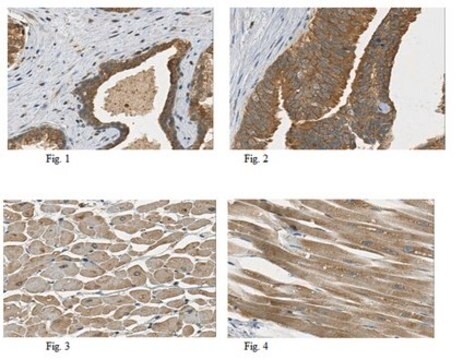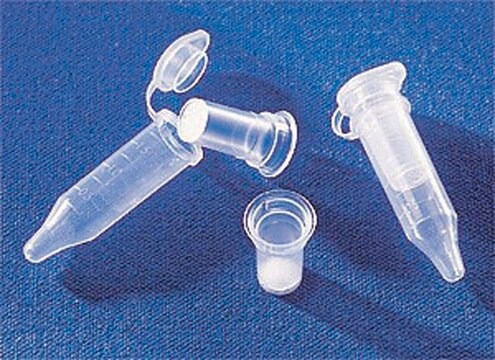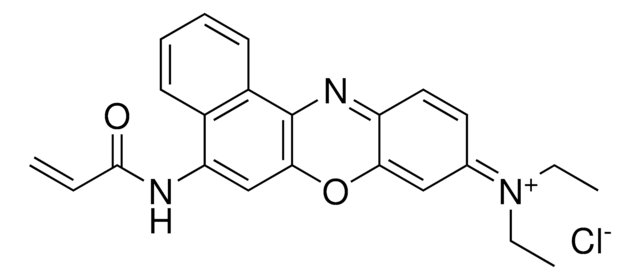ZRB2195
Anti-Interferon γ Antibody, clone 1N13 Antibody, ZooMAb® Rabbit Monoclonal

recombinant, expressed in HEK 293 cells
About This Item
Produits recommandés
Source biologique
rabbit
Niveau de qualité
Produit recombinant
expressed in HEK 293 cells
Conjugué
unconjugated
Forme d'anticorps
purified antibody
Type de produit anticorps
primary antibodies
Clone
1N13, recombinant monoclonal
Description
1N13 Clone
Gamme de produits
ZooMAb® learn more
Forme
lyophilized
Poids mol.
calculated mol wt 19.35 kDa
observed mol wt ~15 kDa
Produit purifié par
using Protein A
Espèces réactives
human
Conditionnement
antibody small pack of 25 μL
Caractéristiques du produit alternatif plus écologique
Waste Prevention
Designing Safer Chemicals
Design for Energy Efficiency
Learn more about the Principles of Green Chemistry.
Validation améliorée
recombinant expression
Learn more about Antibody Enhanced Validation
sustainability
Greener Alternative Product
Technique(s)
affinity binding assay: suitable
flow cytometry: suitable
immunohistochemistry (formalin-fixed, paraffin-embedded sections): suitable
western blot: suitable
Isotype
IgG
Séquence de l'épitope
Unknown
Numéro d'accès Protein ID
Numéro d'accès UniProt
Autre catégorie plus écologique
, Aligned
Conditions d'expédition
ambient
Température de stockage
2-8°C
Modification post-traductionnelle de la cible
unmodified
Description générale
Spécificité
Immunogène
Application
Evaluated by Western Blotting in NK92 cell lysate.
Western Blotting Analysis: A 1:1,000 dilution of this antibody detected Interferon in NK92 cell lysate.
Tested applications
Western Blotting Analysis: A 1:1,000 dilution from a representative lot detected recombinant human Interferon .
Immunohistochemistry (Paraffin) Analysis: A 1:1,000 dilution from a representative lot detected Interferon in human kidney tissue sections.
Affinity Binding Assay: A representative lot of this antibody bound Interferon with a KD of 3.3 x 10-7 in an affinity binding assay.
Flow Cytometry Analysis: 1 µg of a representative lot of this antibody detected interferon-gamma in one million human PBMCs.
Note: Actual optimal working dilutions must be determined by end user as specimens, and experimental conditions may vary with the end user
Description de la cible
Forme physique
Reconstitution
Stockage et stabilité
Informations légales
Clause de non-responsabilité
Vous ne trouvez pas le bon produit ?
Essayez notre Outil de sélection de produits.
Code de la classe de stockage
11 - Combustible Solids
Classe de danger pour l'eau (WGK)
WGK 1
Point d'éclair (°F)
Not applicable
Point d'éclair (°C)
Not applicable
Faites votre choix parmi les versions les plus récentes :
Certificats d'analyse (COA)
Vous ne trouvez pas la bonne version ?
Si vous avez besoin d'une version particulière, vous pouvez rechercher un certificat spécifique par le numéro de lot.
Déjà en possession de ce produit ?
Retrouvez la documentation relative aux produits que vous avez récemment achetés dans la Bibliothèque de documents.
Notre équipe de scientifiques dispose d'une expérience dans tous les secteurs de la recherche, notamment en sciences de la vie, science des matériaux, synthèse chimique, chromatographie, analyse et dans de nombreux autres domaines..
Contacter notre Service technique